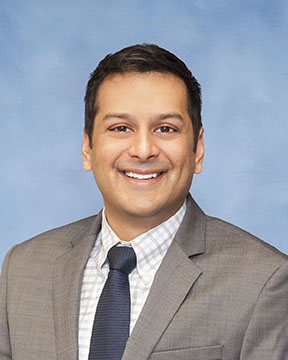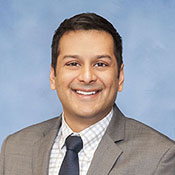Clinical Lecturer SAPAN AMBANI (Urology, Medical School) won the Provost's Teaching Innovation Prize in 2016 for his project, Making Every Second Count With Spaced Questioning Technology.

Time. Urology surgery residents just don’t have much left for studying—after performing surgery, caring for patients, and advancing research. Worse yet, cramming doesn’t support retention of concepts fundamental to the field (see survey results below). Fortunately, personalized learning technology can a) keep track of what material each student has mastered and b) schedule periodic testing of remaining content. Best of all, spaced questioning can actually increase retention up to two years.
Here’s how it works. At any spare moment, residents access a web-based app, answer two daily questions, and immediately see their results and an explanation. (Question sequencing follows a two-year curriculum, so that questions about kidney stones appear when residents begin learning about them.) A correctly answered question returns after 6 weeks and, if answered correctly a second time, it is retired from that student’s question bank. Incorrectly answered questions return after 2 weeks.
UroStream is housed within Qstream, a commercial learning platform. Instead of writing code, faculty members can focus on selecting critical material, developing questions, and monitoring aggregate and individual response patterns. Delegating question management work to software makes the most of scarce faculty and resident time.
Student Comments
“Even on the busiest clinical day, we are able to reinforce our learning with these questions.”
“The UroStream app sends us two questions per day that can be answered at any time, making it super convenient to use.”
“The questions allow you to identify weaknesses and knowledge gaps prior to taking the annual nationwide urology in-service exams, and previous areas of concern became my highest performing areas.”
The fun questions “trigger healthy competition among residents aiming to earn the most points and the most correctly answered questions.”
“I find myself reading more because these are open book questions.”
“I believe I speak for all residents when I say that this has truly made studying more efficient, easier, and fun.”
“Questions reinforce information that we learn during lectures and in the operating room.”
“Doing these questions regularly increased my inservice exam score from mid-70s last year to the 90th percentile this year.”





